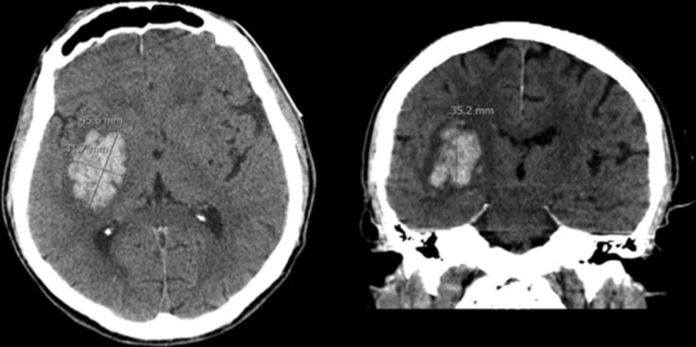Sometimes microbleeds in the brain increase with growing age and can cause cognitive decline. Generally, people with 82+ ages who had transcatheter aortic valve replacement (TAVR), are more likely to have micro bleeding after the endovascular procedure.
Microbleeding is nothing but some small leakages from blood vessels in the brain, identified via MRI scans of the brain. The previous study found that almost 30% people with 80+ ages have micro bleeding problems. But this study that presented at the American College of Cardiology revealed increased risks of micro bleeding among patients who had undergone a previous endovascular procedure.
It is the first ever study that associate link between micro bleeding with an endovascular procedure. It also investigates micro bleeding as a side effect of any cardiac procedure.
Eric Van Belle, a cardiologist at the Centre Hospitalier Regional in Lille said, “We are all aware of the potential for silent ischemic strokes [‘mini-strokes’] after these endovascular procedures, but our study points to the opposite risk—microbleeding—that we have not previously been aware of. With more and more endovascular procedures, which require anticoagulants, it could be that these procedures are one of the main triggers of micro bleeding seen in the older population. It raises the concern that we may be increasing the risk of this micro bleeding with each intervention we perform.”
During the study, scientists involved 84 patients before and after the patients underwent TAVR. They then performed MRI scans and questionnaire-based neurological tests.
MRI scans revealed at least one microbleed in 26 percent of patients. And three days after the procedure, 40 percent of patients had microbleeds and 23 percent had new microbleeds that were not present before TAVR.
The results suggest that systematic MRI investigation could anticoagulation regimen for patients undergoing TAVR.
Van Belle said, “The results strongly suggest that further research is needed to elucidate the causes of microbleeds and determine whether changes in anticoagulation management can help to reduce the risk. Currently, MRI scans of the brain are rarely used to assess safety outcomes in cardiovascular studies, in part because MRI cannot be used in patients with a pacemaker or other types of implanted devices.”
“Although, It is difficult to do this kind of MRI study in this older population, but based on our results I would say that it is worth it to do so when investigating a new treatment or treatment modification. Both mini-strokes and microbleeds likely play a role in cognitive decline. It is possible that using too much anticoagulation therapy could be as bad as using too little.”
